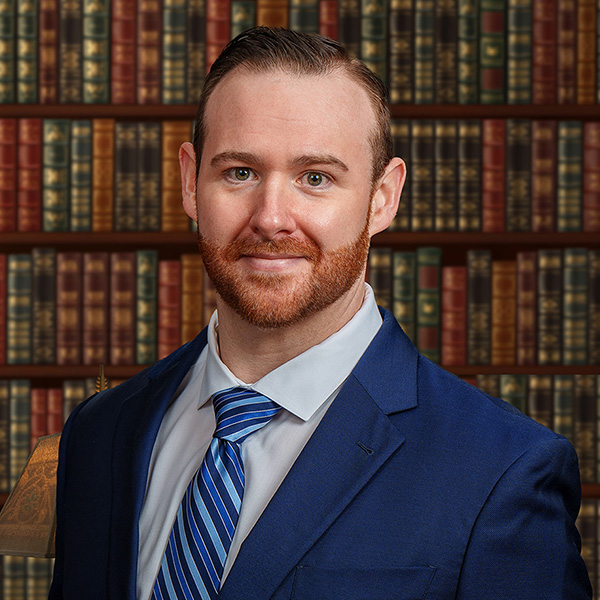Slip and fall accidents can happen unexpectedly and can cause injuries that may take weeks, months, or even years to heal. In Pennsylvania, there are specific rules, known as premises liability laws, that affect these types of cases. These laws play a significant role in deciding who is responsible when someone is injured on someone else’s property. Understanding how Pennsylvania’s premises liability laws work in slip and fall claims can help you know your rights if you or a loved one experiences such an accident. This guide will cover the basics of premises liability, explain what property owners are responsible for, and describe what factors affect a slip and fall claim. At, McDonald At Law, we are here to guide you through the legal process and help you navigate the complexities of your case.
Understanding Premises Liability in Pennsylvania
Premises liability is the responsibility property owners have to keep their property safe for people who come onto it. In Pennsylvania, premises liability laws aim to make sure property owners, whether they own a store, office, or apartment building, keep their property free from hazards that could cause accidents or injuries. These laws apply to all types of properties, from businesses to homes and public places like parks. In a slip and fall case, premises liability laws help determine if the property owner failed to keep the area safe, which led to the accident.
To have a successful slip and fall claim under Pennsylvania law, it is necessary to show that the property owner knew about the dangerous condition or should have known about it and did not fix it or warn people about it. For instance, if there is a spill in a grocery store aisle and it causes someone to slip, the store owner might be responsible if they failed to clean it up or put up a warning sign in a timely manner. However, it is not always easy to prove that a property owner is at fault, and understanding how these laws apply to different types of situations is essential in determining who is responsible in a slip and fall claim.
Types of Visitors and Property Owner Responsibilities
In Pennsylvania, premises liability laws recognize different types of visitors to a property, and the responsibility of the property owner can vary based on the type of visitor. These visitor categories include invitees, licensees, and trespassers. An invitee is someone who has the owner’s permission to be on the property for a business purpose, such as a shopper in a store. Property owners owe the highest level of care to invitees, meaning they must regularly inspect their property for hazards and fix them promptly. For example, store owners must look for anything that could cause a slip or fall, such as spills or broken floor tiles, and take action to fix these problems to ensure a safe environment for shoppers.
“Highly Recommended” is the epitome of an understatement when it comes to the firm of McDonald At Law!! Michael McDonald’s genuine pleasant, and empathetic demeanor masks his legal astuteness, and the level of aggressiveness he implements in pursuit of a victim’s right and the monetary compensation legally entitled to us. I was involved in a motor vehicle accident at the hands of an intoxicated driver in York County. In my case I suffered what I described as an atypical injury, Mr. McDonald offered to be my Lawyer immediately after explaining to him the events leading to and after being struck in turn causing me to have a heart attack, when another law firm seemed hesitant. McDonald At Law secured a sizable monetary compensation that not only met my expectation but exceeded it. Mr. McDonald’s wealth of experience, and legal prowess is priceless and never did he act as the case was beneath his practice. In the end my family and I were well compensated, but also felt justified. Thank you McDonald At Law!!- Miguel Lopez
Licensees are individuals who have permission to be on the property for their own reasons, such as guests at a friend’s house. Property owners are expected to inform licensees about any hazards they know of that might not be obvious. For instance, if there is a loose step on the front porch, a homeowner should warn visitors about it so they can avoid injury. Trespassers, on the other hand, are people who enter the property without permission. Generally, property owners do not owe trespassers the same duty of care, but they still cannot purposefully set up dangers or traps that could cause harm. In some cases, such as when children trespass, property owners may have a responsibility to take reasonable steps to prevent injuries, especially if there is something dangerous and attractive to children, like a swimming pool or an abandoned building.
Proving Negligence in Slip and Fall Cases
For a successful slip and fall claim, the injured person must prove that the property owner was negligent. Negligence means that the property owner did not act with the level of care that a reasonable person would have in the same situation. This means that simply falling on someone’s property is not enough to hold the owner liable; there must be evidence showing the owner’s failure to address a hazardous condition. For example, in a slip and fall case involving ice on a sidewalk, the injured person would need to show that the property owner either knew or should have known about the ice and failed to take steps to remove it.
There are several elements to proving negligence in Pennsylvania slip and fall cases. First, it is necessary to show that the property owner owed a duty of care to the person who was injured. Second, it must be proven that the owner breached that duty by not taking reasonable actions to keep the area safe. Third, there must be a direct link between the breach of duty and the slip and fall accident. Lastly, the injury caused by the accident must have resulted in damages, such as medical bills, lost income, or pain and suffering. All these elements are crucial for building a strong slip and fall claim in Pennsylvania.
Putting off an Attorney due to Cost Choosing a Personal Injury AttorneyRelated Videos
Common Causes of Slip and Fall Accidents
Slip and fall accidents can happen in various ways, often due to dangerous conditions that property owners failed to address. One common cause of slip and fall incidents is wet or slippery floors, which can be the result of spills, cleaning solutions, or rainwater tracked indoors. If these hazards are not cleaned up quickly or are left without warning signs, they can pose a risk to visitors. Uneven flooring, such as loose floor tiles, worn carpets, or broken sidewalks, is another frequent reason for slip and fall injuries. These issues can catch people off guard, leading to accidents that can cause serious injuries.
Poor lighting can also contribute to slip and fall accidents. When areas like stairways, parking lots, or hallways are dimly lit, it becomes harder to spot potential hazards, increasing the chance of someone tripping or slipping. Cluttered walkways, such as aisles filled with boxes in a store, can also be risky as they may obstruct a person’s path. In outdoor areas, snow and ice are common hazards during Pennsylvania’s colder months. Property owners are typically required to remove snow and ice within a reasonable timeframe to prevent slip and fall accidents. Failure to do so can make them liable if someone gets injured because of these hazardous conditions.
The Role of Comparative Negligence in Slip and Fall Claims
In Pennsylvania, the concept of comparative negligence may affect the outcome of a slip and fall claim. Comparative negligence means that if the injured person was partly responsible for the accident, their compensation might be reduced. For instance, if a person slipped in a store but was not paying attention because they were texting, the court might decide that they are partially at fault. In Pennsylvania, as long as the injured party’s share of fault is 50 percent or less, they can still recover damages, but the amount will be reduced according to their level of fault. If they are found more than 50 percent responsible, they may not receive any compensation.
This concept plays an important role in slip and fall cases because it takes into account the actions of both the property owner and the injured person. Proving that the property owner’s negligence was the primary cause of the accident is crucial for a successful claim. If the injured party’s actions contributed significantly to the fall, their compensation could be significantly reduced or even denied. For this reason, it is essential to gather as much evidence as possible to support a slip and fall claim.
Gathering Evidence to Strengthen a Slip and Fall Claim
Evidence is key in building a strong slip and fall claim under Pennsylvania premises liability laws. Photographs of the accident scene, witness statements, and security camera footage can help show that the property owner’s negligence led to the injury. It is also essential to get medical records to document the injuries, as they can demonstrate how serious the fall was and how it impacted the injured person’s life.
In addition, keeping records of any communication with the property owner or their insurance company can also be helpful. This documentation can show what steps, if any, the property owner took to fix the hazard before or after the accident. Evidence that shows a clear link between the property owner’s failure to maintain a safe environment and the slip and fall accident can help establish liability, making it more likely for the injured person to recover compensation for their losses.
Seeking Compensation for Slip and Fall Injuries
If someone is injured in a slip and fall accident, they may be eligible for different types of compensation under Pennsylvania law. This can include coverage for medical bills, lost wages, and pain and suffering caused by the accident. Compensation for medical expenses may cover costs related to doctor visits, hospital stays, physical therapy, and other treatments required to recover from the injury. Lost wages cover the income lost when the injured person is unable to work due to their injuries. Pain and suffering refer to compensation for the physical and emotional distress caused by the accident.
Recovering compensation after a slip and fall accident is not always straightforward. Insurance companies often try to minimize the amount they pay out in claims, and they may argue that the injured person was at fault. For this reason, it is often helpful to work with someone knowledgeable in Pennsylvania premises liability laws to guide the injured person through the process. They can help gather evidence, negotiate with insurance companies, and build a strong case to seek fair compensation for the injuries and losses suffered.
If you or someone you know has been injured in a slip and fall accident in Pennsylvania, understanding premises liability laws is essential in seeking justice and fair compensation. Navigating these laws can be challenging, especially when dealing with injuries and financial hardships. At McDonald At Law, we are dedicated to helping injured individuals understand their rights and fight for the compensation they deserve. Reach out to us today for a consultation to discuss your case and learn how we can assist you in your journey toward recovery.



